Your PC's memory (RAM) is a very crucial component. If the RAM chip goes bad or develops too many errors your PC will start crashing, hanging and eventually become unusable until you replace the RAM. In many cases, a defective RAM module continues to work sometimes but causes sudden issues occasionally. This behaviour is very annoying as your PC can crash suddenly but it is hard to diagnose such a memory issue. Fortunately, Windows 8, Windows 7 and Vista ship with a built-in memory diagnostic tool. Let's see how to use it to know for sure if the memory is defective.
Advertisеment
The Windows Memory Diagnostic Tool performs a series of intensive memory tests. If all of them succeed, then the PC's RAM chip can be considered problem-free.
To run the Windows Memory Diagnostic tool, you need to do the following:
- On the Start Screen, type the following text:
w m d
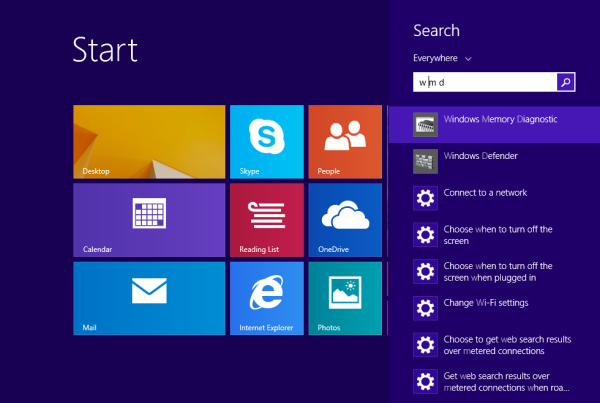
This will bring up Windows Memory Diagnostic immediately in search results. If you don't get it by typing: w m d, then type:memory
Tip: see this article to learn how you can do fast searches from the Start screen: How to speed up search on the Start screen in Windows 8.1.
Alternatively, you can press Win + R shortcut on the keyboard and type the following command in the Run box:
mdsched.exe
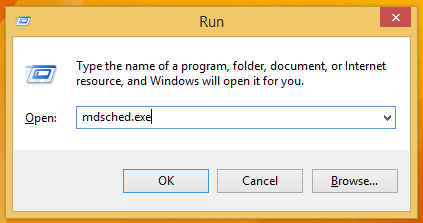
Tip: Ultimate list of all Windows keyboard shortcuts with Win keys. - Windows Memory Diagnostic will appear on the screen.
Click "Restart now and check for problems" to start checking your RAM.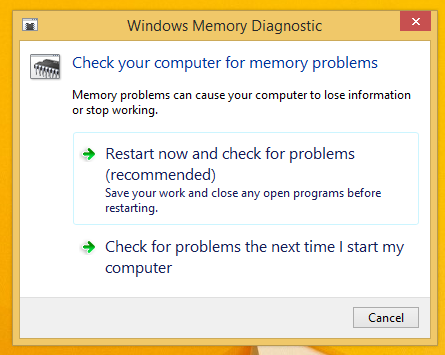
After restarting, Windows 8 will start the standard set of memory tests.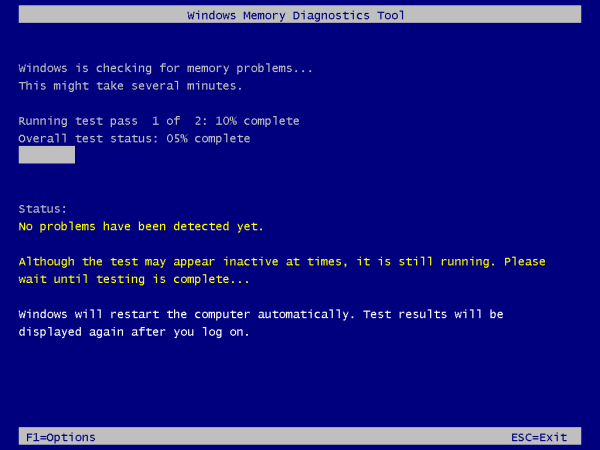
You can change the current set of tests with the F1 key. You can choose from basic, standard and extended set of tests.
After Windows 8 completes the RAM check, it will restart your PC automatically.
You can find the results of the memory check in Event Viewer. Under Windows Logs -> System, look for events which have "MemoryDiagnostics" in the Source column.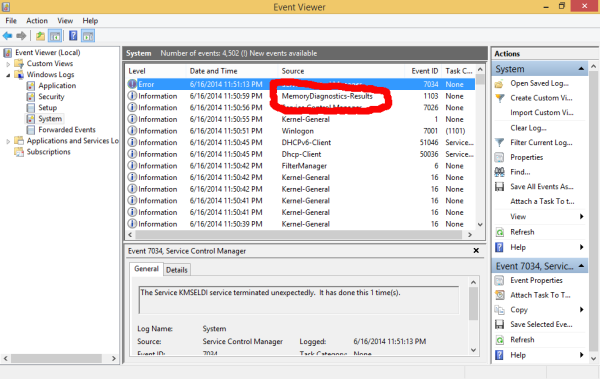
That's it. This is a sure way to know if your PC's memory is going bad or if the crashes and hangs you may be experiencing are caused by some other defective hardware.
Support us
Winaero greatly relies on your support. You can help the site keep bringing you interesting and useful content and software by using these options:

i tried to google a lot but it’s hard to find! Finally i found this article about memory diagnostics! thanks! how about the hard drive diagnostics?
Chkdsk utility can say if drive OK or not. But in this case some third party tool like MHDD or Victoria is much better.
oh ok thanks for the reply!
Does the built in Windows Memory Diagnostics in Windows 8.1 Enterprise 64 check the whole memory or only 4GB?
The reason to ask this question is because the non built in Windows Memory Diagnostics, available to download as an .iso file and them burn on the CD and reboot, does NOT check the full amount of RAM but only 4GB maximum, instead.
I tried from my Windows 8.1u1 x64, not from the ISO, it has checked whole 8 Gb.
However, I have the Retail OS, not Enterprise.